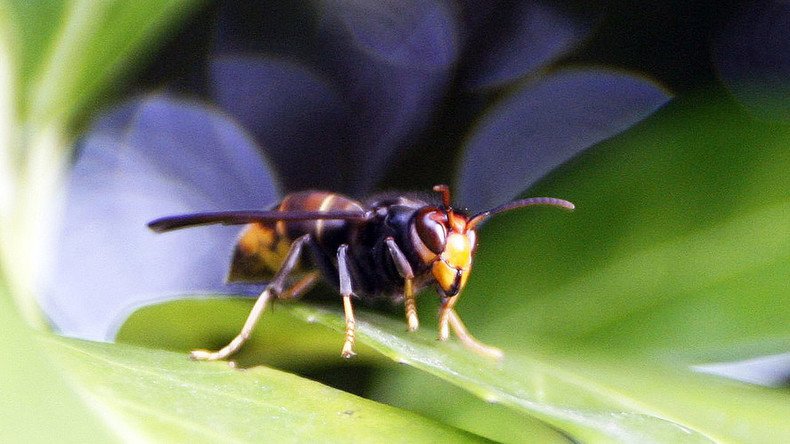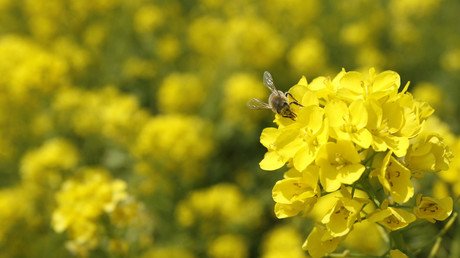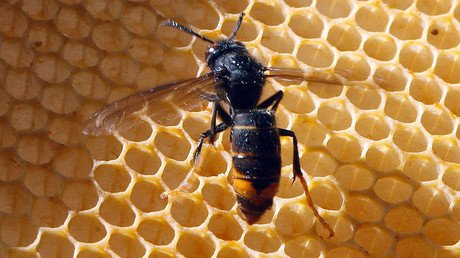They’re here! Long-feared UK arrival of honeybee-killing Asian hornet confirmed

The first sighting of an invasive Asian hornet to the UK mainland has been confirmed, with experts warning of dire consequences for honeybees if the new species is not swiftly eradicated.
The hornet, Vespa velutina, has been found in the Tetbury area of Gloucestershire. Specialist hornet-killing squads armed with infrared cameras and specialist pesticides are now out in force to find and destroy its nests.
The National Bee Unit has opened a three-mile surveillance zone around Tetbury, where the hornet was found. The unit has also opened a local control center to coordinate the response.
A second Asian hornet has been seen since, which experts say suggests there was a nest of the invasive species.
While the Asian hornet offers no threat to human health, it poses a risk to important pollinating insects such as honeybees and could do serious damage to colonies in Britain, which have been in decline for many years.
The hornet first arrived in France in 2004 and is now common across large areas of Europe. Officials in the UK have been concerned the species would arrive here through imports such as plants or timber, or even by flying across the Channel.
The species was discovered for the first time in Jersey and Alderney this summer.
Diane Roberts, the press officer for the British Bee Keepers Association (BBKA), said the hornets hover outside the entrance to beehives and as the bees fly out, “they kill them by biting off their heads.”
“When enough bees are dead they invade through the entrance of the hive and take the honey. They also eat the baby larvae of the bees too,” she added.
Nicola Spence, the Environment Department’s deputy director for plant and bee health, said: “We have been anticipating the arrival of the Asian hornet for some years and have a well-established protocol in place to eradicate them and control any potential spread.
“It is important to remember they pose no greater risk to human health than a bee, though we recognize the damage they can cause to honeybee colonies.
“That’s why we are taking swift and robust action to identify and destroy any nests.”
It is believed the hornets will not be able to survive in the north of the UK due to the colder winters.














